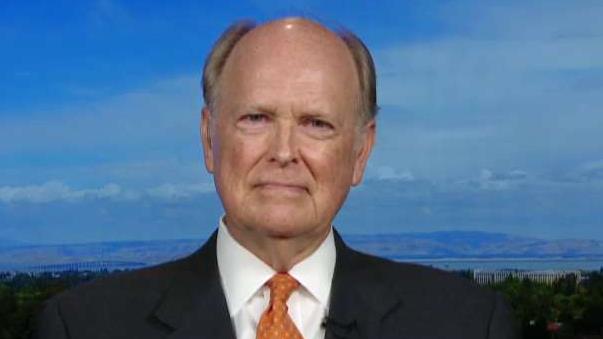Fed's Plosser: Monetary Policy Won't Fix Slow Growth
The Federal Reserve might be on the verge of raising near-zero interest rates for the first time since December but former Philadelphia Federal Reserve President Charles Plosser says monetary policy isn’t the solution to slow growth.
“We’ve been close to zero now for seven or eight years and that’s a long time. Monetary policy and the effects of low interest rates, at least administered through monetary policy, don’t have a tremendous track record of being able to help the underlying economy very much – at least only very temporarily. And so if people are upset about slow growth, then we need to think about, well why that is slow growth so slow and what can we do about it,” he told the FOX Business Network’s Neil Cavuto.
St. Louis Federal Reserve President James Bullard on Monday said keeping interest rates too low for too long could cause financial instability.
“I think you can see some of the language and speech talks that have been coming out. I think the Fed has established kind of the groundwork… if things continue to improve, that they want to get back on their plan of normalizing rates,” said Plosser.
Last month, the economy showed signs of improvement with a 6.6% uptick in housing starts, but Plosser says the better-than-expected data might not be enough to propel the Fed.
“I think the data has been pretty good. The first-quarter seemed to have been sort of an anomaly and there was a lot of volatility. A lot of that seems to have sort-of calmed down and I think the Fed is sort of looking for some good news, but there’s still data to come out before the meeting, so we will have to wait and see a little bit.”
During an appearance with Maria Bartiromo on Fox News’ Sunday Morning Futures, San Francisco Fed President John Williams said the race for the White House won’t stop the Fed from hiking rates this year.
“In a presidential election year, there’s lots of volatility in financial markets. There’s sort of news about this, that and the other and what candidates may or may not do when the election is over. But for the most part, the Fed feels pretty strongly that it needs to do what it thinks is the right thing to do at the right time. That kind of discretionary ability is fraught with problems at times, but I think they don’t really think about politics on a day-to-day basis in decision making,” Plosser said.
He added, “one of the things I learned from the crisis and the turmoil that followed that is, “never say never.’”
Plosser also said Bayer’s $62 billion dollar offer for Monsanto (NYSE:MON) would not impact any rate- decision making.




















